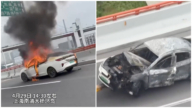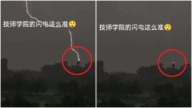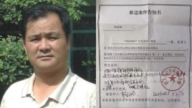【新唐人2014年04月14日訊】近年來,中國大陸醫患衝突愈演愈烈,惡性殺醫案件頻發,為「推進醫患交流互動,增進醫患互信」,日前,北京21家市屬醫院向社會招募所謂「守護天使」的志願者,從事患者陪伴、安慰等服務。專家認為,醫患衝突是現行醫療體制的問題,只靠調解不可能得到緩解。
近年來,中國各地傷醫、殺醫事件不斷增多,今年年初,中共當局加強了醫院內的安保強度。3月,最高人民法院院長周強宣佈,今年將加大對「醫鬧」的打擊力度。
中共總書記習近平和最高法院民一庭副庭長程新文也聲言,要嚴懲「醫鬧」和暴力傷醫的犯罪行為,並追究刑事責任。
但是暴力傷醫事件並沒有因此減少。3月底,45歲的男子王方立,在江蘇省徐州市豐縣協和門診部接受「包皮環切術」後,做輸液抗菌治療,因不滿治療效果和過高的醫療費,4月8號持刀把醫生單二輝刺死。
為此,北京21家市屬醫院97個崗位,準備招募1573名「守護天使」志願者,定期或者長期從事患者陪伴、心靈撫慰等志願服務工作。說是為了推進患者、醫務工作者、醫院管理者交流互動,增進醫患之間的互信。
不願透露名字的廣東胡醫生認為,招募「守護天使」志願者,可能短期有效,但長期效果不樂觀。
廣東醫師胡醫生:「醫患關係的話,現在社會上譴責醫者的人比較多一些,實際上醫院裏面是黑幕重重, 我記得鍾南山院士在兩會的時候也說到,中國醫療不靠技術靠開藥,這種現象是廣泛存在的。」
美國國家衛生研究院的專家胡宗義指出,醫生也在想辦法撈錢,這讓患者不再相信醫生。
美國國家衛生研究院專家胡宗義:「看到別人掙錢多了,醫生也想別的辦法,那些紅包方方面面的、回扣等各種各樣的辦法都出來了,有些付得起的人他可以付,他無所謂,那些弱勢群體,他沒有錢,他付不起,但又得找好醫生他怎麼辦?他當然就心理不平衡了,這矛盾就來了。」
南京「東南大學」法學教授張讚寧指出,中共當局對醫院的撥款很少,90%以上靠醫院賺錢養活醫生。
南京東南大學法學教授張讚寧:「所以醫生他必須要多開藥、多檢查,這個醫德、醫風就明顯滑坡,這樣就激化醫患矛盾,群眾就看病難、看病貴,這個問題就越來越突出,因為我們國家缺少一個負責任的政府。」
中共人大代表、浙江臺州醫院院長陳海嘯曾在去年兩會指出,改革開放後,醫療市場一味追求「經濟醫療」,從而使老百姓的醫療負擔變得非常沉重。醫療行業的壟斷性以及一些醫生職業素養的下降,共同把醫療費用抬高,導致患者看病難、看病貴。
張讚寧指出,中共當局「行政開支」全世界第一高,但對於醫療經費投入的相當少。
張讚寧:「大量的錢都用於給官員們買車、房子自己享受,這樣就造成老百姓由於他看病難、看病貴,就會把本來應當是同國家、同政府之間的矛盾,就轉嫁到醫生的頭上,把這些不公平的現象,認為都是醫生造成的,實際上政府投入太少。」
早在2009年1月,已經通過「新醫改」方案,計劃3年投入8500億,對13億人進行「全覆蓋」照顧。可是,醫療資源配置的扭曲並未改善,醫患衝突逐年加劇。
中國醫師協會顧問律師鄧利強向媒體介紹,早年醫生被打案件平均每年1萬1000多起,2009年起逐步上升。中共衛計委統計,僅去年就發生約7萬起醫療糾紛。
中共人大代表、肺移植專家陳靜瑜公開在媒體感嘆,身為一名外科醫生,壓力真的很大,連做夢都經常被患者及家屬誤解和糾纏。
她說,醫護行業本是受人尊重的行業,但近年來隨著醫患矛盾不斷增多,並經常出現暴力事件,使醫療行業的吸引力大為降低,甚至被一些人看做危險的職業。
採訪編輯/李韻 後製/李勇
Doctor-Patient Conflict depends on the conciliation of “Angel Guard"
In recent years, doctor-patient conflict is
increasingly developing so that cases
of cruelly killing doctors frequently occur.
In order to “Promote interactive communication
between doctors and patients,
and enhance reciprocal trust", in recent days,
21 Beijing Municipal hospitals recruited
so called “Angel Guard" volunteers
for accompanying and consoling the patients.
Experts think, conflict between doctors and patients
is an issue due to current medical institutions
and is impossible to relieve only by conciliation.
In recent years, cases of hurting
and even killing doctors across China are increasing.
At the beginning of this year,
the Chinese Communist Party (CCP) Authority strengthened
safeguards within hospitals.
In March, the President of the Supreme People’s Court
Zhou Qiang announced that this year the powers to deal with
the “Medical Troubler" have been enhanced.
The CCP Head Xi Jinping and the Deputy Chief
of the First Civil Chamber of Supreme People’s Court
Cheng Wenxin both said,
the crime of “Medical Troubler"
and attacking doctors by violence,
will be severely punished
and the penal responsibility of the relevant suspects traced.
However, such responses from the high level do not reduce
the cases of attacking doctors by violence.
At the end of March, a 45 year old man Wang Fangli
received an operation for prepuce postectomy
and then transfusion for antibiotic treatment
in Concord Clinic of Feng County of
Xuzhou City in Jiangsu Province.
But Wang was dissatisfied with the operation’s effects
and high medical cost, so he stabbed
the doctor Shan Erhui to death with a knife on April 8.
In view of such events, 97 positions
at 21 Beijing Municipal hospitals are recruiting 1573
“Angel Guard" volunteers who are expected to
regularly or long-term accompany and console patients.
It is said to promote interactive communication
among patients, medical staff and hospital executives,
as well as enhance reciprocal trust.
Dr Hu from Guangdong Province,
who does want to give his name,
says to recruit “Angel Guard" volunteers might be
useful in the short term, but useless long term.
Dr Hu: “as for the relationship between doctors and patients,
more people blame the doctor.
In fact, there are numerous black areas inside hospitals.
I remember that the Academician Zhong Nanshan said
during Two Major Conference, the medical field in China
sustains itself by selling medicines
rather than medical technologies.
Such a phenomenon is prevalent."
American National Health Institute’s expert Hu Zongyi says,
doctors are managing to make money,
which causes distrust between patients and doctors.
Hu Zongyi: “when seeing others can make a lot of money,
the doctors also invent other ways including
red packet within cash, discounts etc.
Some people can pay, so they do pay
and this is nothing for them.
But those vulnerable groups who have no money and cannot pay,
but have to look for a good doctor, so what can they do?
They of course feel unbalanced inside
and then the conflict arises."
Nanjing-based Southeast University Legal Professor
Zhang Zangning points out, the CCP Authority allocated
limited funds to hospitals. So 90% of hospitals support
the doctors with the money made by hospitals themselves.
Zhang Zangning: “So the doctors had to
give more medicines and more checking procedures.
Medical morality and medical style have
significantly collapsed, which has sharpened
the doctor-patient conflict.
The problem of ordinary people’s difficulty in seeing a doctor
and affording the medical costs
has become more and more outstanding.
Because our country lacks a responsible government."
The CCP’s Representation of National People’s Congress
and the head of Taizhou Hospital in Zhejiang Province
pointed out during last year’s Major Conference,
since reform and open policy was implemented,
the medical service market was only targeting
“economic treatment", which aggravated
ordinary people’s medical burden into a heavy situation.
The monopoly of the medical profession and the degradation
of some doctors’ professional nature, lifts the medical cost
thus leading to the difficulties of a patient in
seeing a doctor and high cost pressure on the patients.
Zhang Zanglin said, the CCP Government has
a No. 1 administrative cost,
but funds the medical field at a much lower level.
Zhang Zanning: “A huge amount of money has been
used for buying cars and properties for officials,
which causes the difficulty and the expense
of seeing doctors for ordinary people.
This is to push the original discontents
towards the government and the CCP on to the doctors,
and to attribute all these unfair phenomena
to the doctors. The truth is too little funding
for the medical field by the Government."
In January of 2009, “New Medical Reform" Scheme
was passed and it was planned to fund 850 billion
in a three year period to “fully cover" a total
of 1.3 billion population.
But, the misallocation of medical resources
has not yet been improved, and doctor-patient conflict
is increasing year by year.
The lawyer of China’s Doctor Association Deng Liqiang
told media, previously cases of attacking doctors
were 11,000. But since 2009, there is an annual increase.
According to the CCP’s Health Ministry statistics data,
in the last year, there were about 70,000 medical dispute cases.
CCP Representative and lung transplant expert Chen Jingyu
said on the media that as a surgeon,
she has a heavy pressure. She was concerned about being
misunderstood and entangled by the patients
and their family members even in dreams.
She says, the medical profession was originally a respected field.
But along with recent years’ increasing incidents
between doctors and patients and
frequent violent incidents, the attractiveness
of the medical field is largely reduced
and even regarded as a dangerous profession.
Interview & Edit/Li Yun Post-Production/Li Yong




























